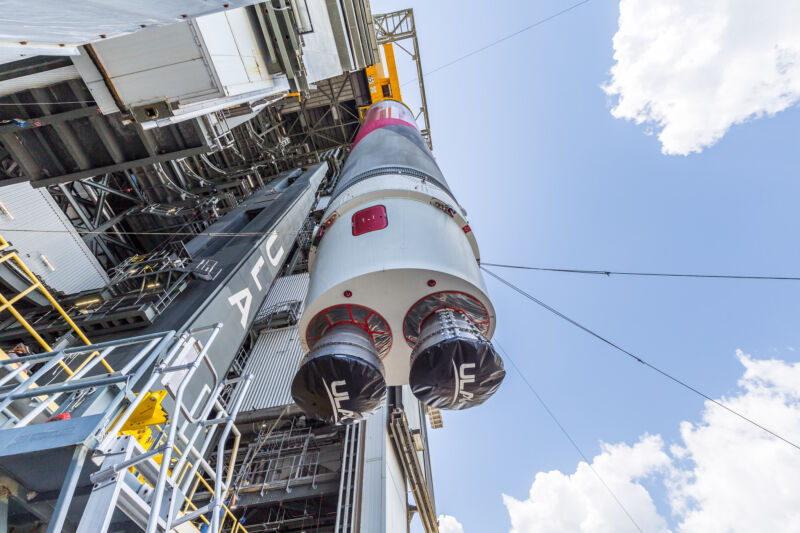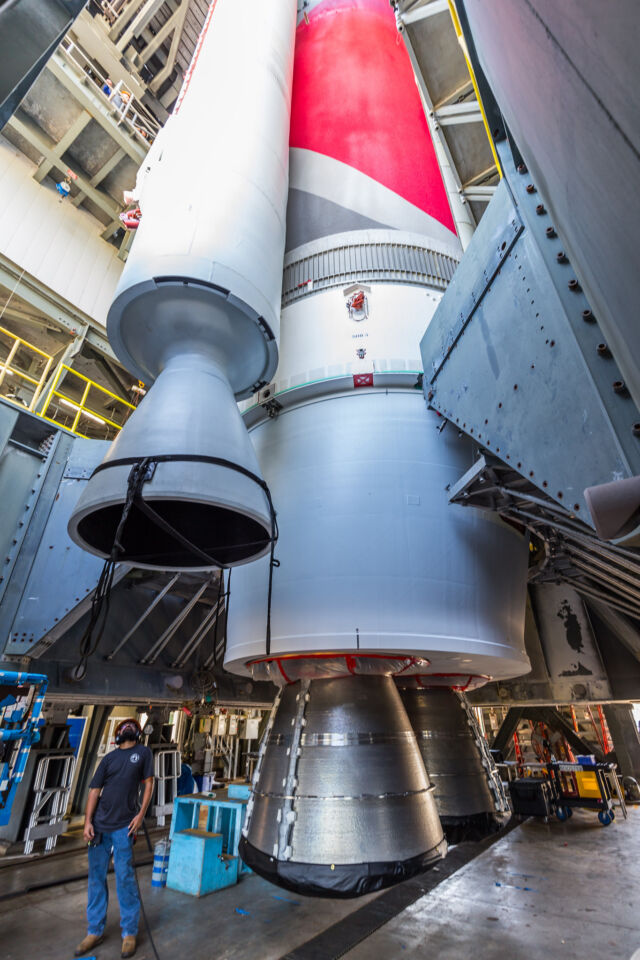
This article was originally published on ARS Techica - Science. You can read the original article HERE

United Launch Alliance is free to compete for NASA contracts with its new Vulcan rocket after a successful test flight earlier this year, ending a period where SpaceX was the only company competing for rights to launch the agency's large science missions.
For several years, ULA was unable to bid for NASA launch contracts after the company sold all of its remaining Atlas V rockets to other customers, primarily for Amazon's Project Kuiper Internet network. ULA could not submit its new Vulcan rocket, which will replace the Atlas V, for NASA to consider in future launch contracts until the Vulcan completed at least one successful flight, according to Tim Dunn, senior launch director at NASA's Launch Services Program.
The Vulcan rocket's first certification flight on January 8, called Cert-1, was nearly flawless, demonstrating the launcher's methane-fueled BE-4 engines built by Blue Origin and an uprated twin-engine Centaur upper stage. A second test flight, known as Cert-2, is scheduled to lift off no earlier than October 4 from Cape Canaveral Space Force Station, Florida. Assuming the upcoming launch is as successful as the first one, the US Space Force aims to launch its first mission on a Vulcan rocket by the end of the year.
The Space Force has already booked 25 launches on ULA's Vulcan rocket for military payloads and spy satellites for the National Reconnaissance Office. But these missions won't launch until Vulcan completes its second test flight, clearing the way for the Space Force to certify ULA's new rocket for national security missions.
Back in the game
NASA's Launch Services Program (LSP) is responsible for selecting and overseeing launch providers for the agency's robotic science missions. NASA's near-term options for launching large missions include SpaceX's Falcon 9 and Falcon Heavy rockets, ULA's Vulcan, and Blue Origin's New Glenn launcher.
However, only SpaceX's rockets have been available for NASA bids since 2021, when ULA sold all of its remaining Atlas V rockets to Amazon. For example, ULA did not submit proposals for the launch of a GOES weather satellite or NASA's Roman Space Telescope, two of the more lucrative launch contracts the agency has awarded in the last couple of years. NASA selected SpaceX's Falcon Heavy, the only eligible rocket, for both missions.
This is a notable role reversal for SpaceX and ULA, a 50-50 joint venture between Boeing and Lockheed Martin that was the sole launch provider for large NASA science missions and military satellites for nearly a decade. SpaceX launched its first mission for NASA's Launch Services Program in January 2016.
The situation changed with the first flight of the Vulcan rocket in January.
"They certainly demonstrated a huge success earlier this year flying Cert-1," Dunn told Ars in an interview. "They needed a successful flight to then bid for future missions, so that allowed them to be in a position to bid on our missions."
NASA has not yet formally certified the Vulcan rocket to launch one of the agency's science missions, but that would not stop NASA from selecting Vulcan for a contract. Some of NASA's next big science missions up for launch contract awards include the nuclear-powered Dragonfly mission to explore Saturn's moon Titan and an asteroid-hunting telescope named NEO Surveyor.
The second Vulcan flight next month will move ULA's rocket toward certification by the Space Force and NASA.
"A second Cert flight that will then demonstrate a few other capabilities of the rocket allows more data for our certification team that is working in concert with the US Space Force's certification team," Dunn said. "We're doing a lot of shared, intergovernmental collaborations in the certification work, so it allows us all more data, more confidence in that launch vehicle to meet all the needs that we believe we will have in the coming decade-plus."

Blue Origin's New Glenn could also compete for contracts to launch NASA's larger, more expensive missions after it completes at least one successful flight. Blue Origin is currently eligible for bids to launch NASA's smaller missions, such as the ESCAPADE mission to Mars already assigned to New Glenn. NASA is willing to accept more risk for launching these types of lower-cost missions.
ULA capped off the assembly of its second Vulcan rocket at Cape Canaveral on Saturday when technicians lifted the launcher's payload fairing atop Vulcan's first-stage booster and Centaur upper stage. For its second launch, Vulcan will carry a dummy payload instead of a real satellite. The second Vulcan flight was initially supposed to launch Sierra Space's first Dream Chaser spaceplane to the International Space Station, but Dream Chaser isn't ready, and the Space Force is eager for ULA to get moving and finish the certification process.
The head of Space Systems Command, Lt. Gen. Philip Garrant, told Ars last week that he is "optimistic" ULA will be in a position to launch its first Space Force missions with the Vulcan rocket by the end of this year. ULA has already delivered Vulcan rocket parts for the next two missions to Cape Canaveral, but the Cert-2 launch needs to go off without a hitch.
"We're working very closely with ULA on that, as well as the manifest for the following missions," Garrant said. "All of the rocket parts are at the launch locations, ready to go, but clearly the priority is the certification flight and making sure that the launch vehicle is certified. But we are optimistic that we're going to get those launches off."
This article was originally published by ARS Techica - Science. We only curate news from sources that align with the core values of our intended conservative audience. If you like the news you read here we encourage you to utilize the original sources for even more great news and opinions you can trust!










Comments